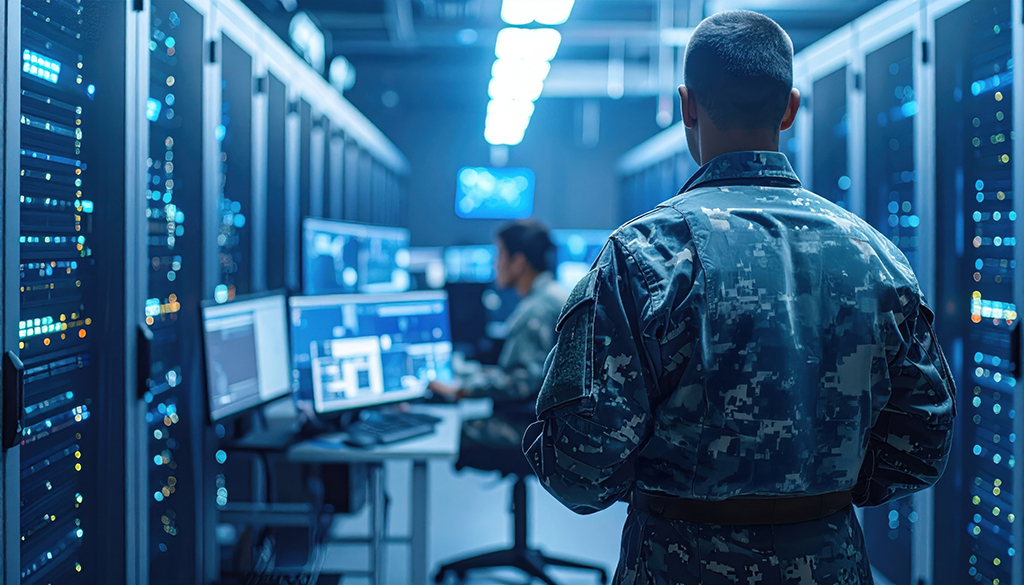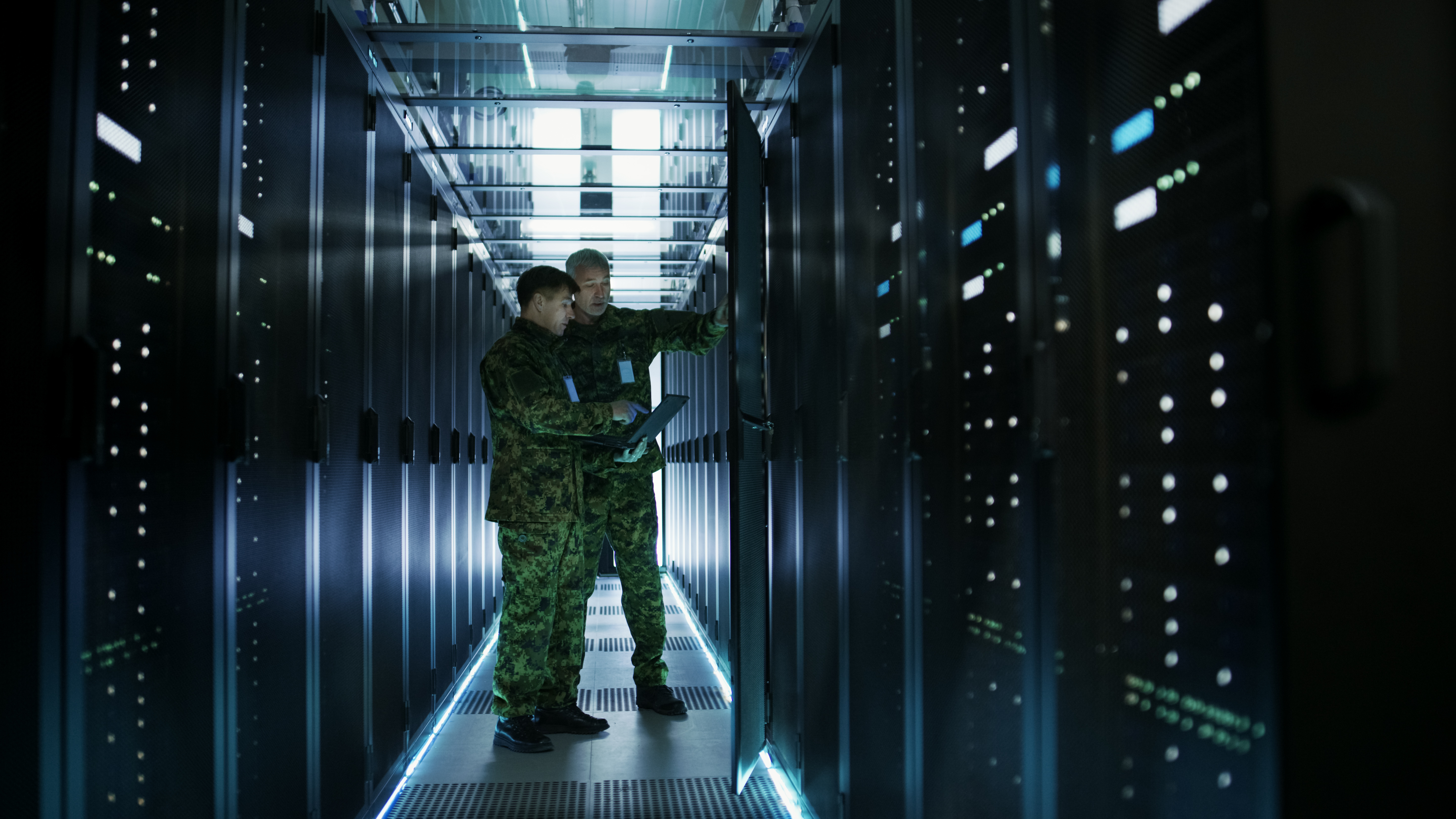Defense industry

Digital transformation in the defense industry: Balancing innovation and protection
Advancing digitalization is transforming the defense industry across the board – from research and development to production, operational support, and logistics. New technologies such as artificial intelligence, simulations, digital twins, and data-driven analytics enable more efficient development processes, faster decision-making, and the creation of innovative capabilities that are critical to national security and international cooperation.
The networking of highly complex systems is central to this: from classic IT infrastructure to specialized simulation and test environments to operational platforms and safety-critical weapon systems. This integration increases innovation, speed, and interoperability – but at the same time creates new vulnerabilities and security risks.
In an industry where intellectual property, confidential project data, and security-related information are among the most sensitive assets, the highest standards of confidentiality, integrity, and availability are essential. While operational systems require maximum robustness and resilience, traditional IT focuses more on flexibility, scalability, and international collaboration. Only a holistic security concept can ensure that the opportunities offered by digitalization can be exploited sustainably and securely.
Sources of danger in defense
Source: BrightDefense (Preveil) | ZipDo Education Reports 2024
IT security in the defense industry – challenges and added value

Secure IT networks for the defense sector
Whether it's the armed forces, the defense industry, or research centers, protecting sensitive information, technologies, and systems is a top priority in the defense sector. However, with increasing digital networking, international cooperation, and the use of modern platforms, the threat of cyberattacks, industrial espionage, and sabotage is also growing. To meet these challenges, ARP-GUARD offers a specialized security solution that ensures transparency, control, and protection for highly sensitive networks.
Challenges in the defense industry
- Technological diversity: Combination of modern platforms with legacy-based systems.
- Critical mission networks: Communication and control systems must be protected with absolute reliability.
- Confidentiality & secrecy: Project data, deployment scenarios, and research documents must not be compromised.
- Strict regulations: NATO standards, national security laws, and ISO standards require traceable security processes.
- Cooperation and alliances: International cooperation requires secure data exchange.
- Access management: Temporary users such as external specialists or partner companies pose potential risks.

Increasing threats
- State-sponsored cyberattacks: Focus on communication systems, weapons technologies, and deployment plans.
- Cybercriminal groups: Exploiting vulnerabilities to infiltrate or disrupt critical systems.
- Economic and industrial espionage: Interception of security-related research projects and technologies.
- Consequences: From information leaks to operational restrictions to impairments in operational readiness.
Added value for defense organizations
With ARP-GUARD, organizations in the defense sector achieve a new level of network transparency – the basis for:
- Protection against espionage, sabotage, and cyberattacks
- Securing research projects, technologies, and operational information
- Reliable compliance with national and international security standards
- Trustworthy cooperation with partners and allies
The solution is scalable, adaptable, and seamlessly integrable – from military facilities to research laboratories to industrial partners.




